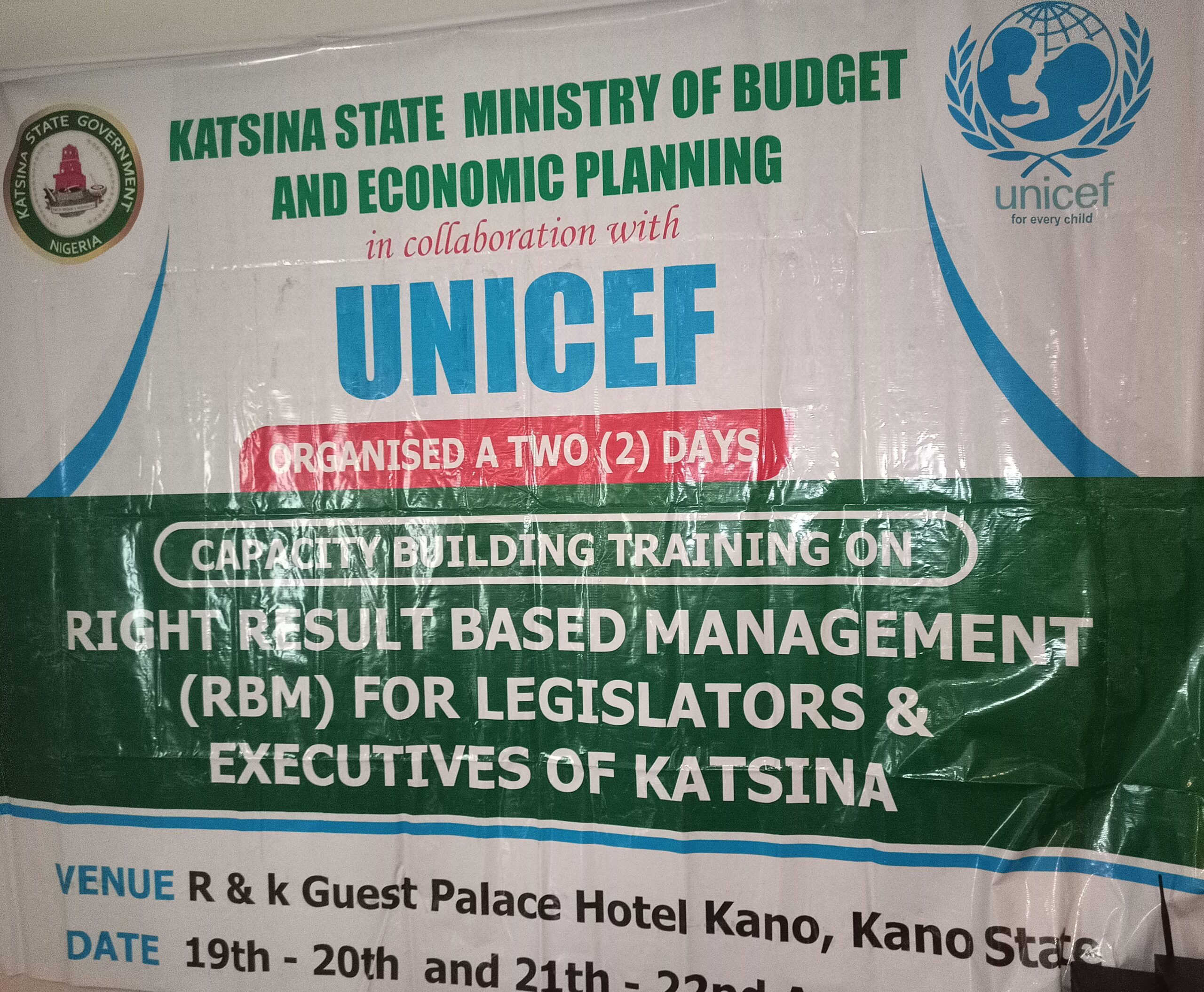UNICEF, Katsina Partner on Enhancing Results-Based Management, Good Governance
In a significant effort to enhance good governance and policy implementation, the United Nations International Children’s Emergency Fund (UNICEF), is organizing a capacity-building training on Results-Based Management (RBM) for the executives and legislators of Katsina State.
The training, which is being conducted in collaboration with the Ministry of Budget and Economic Planning of Katsina State, is aimed at equipping key government stakeholders with essential skills to improve the planning, execution, and evaluation of policies and projects in the State.
Holding in Kano State, the two-day training is focused on strengthening the participants’ understanding of RBM as a strategic approach that ensures better accountability, transparency, and efficiency in public administration.
In his welcome address, the Honourable Commissioner for the Ministry of Budget and Economic Planning of Katsina State, Bello Hussaini Kagara, commended UNICEF for its partnership and reiterated the state’s commitment to adopting RBM practices for better governance.
He noted that the training would enhance the capacity of government officials to effectively manage public resources and ensure the successful implementation of programs aimed at improving living standards.
Represented by Permanent Secretary of the Ministry, Mr. Kagara, also highlighted that RBM is not without its
challenges and difficulties.
According to him, “Implementing this approach in complex or uncertain environments can be difficult, especially when outcomes are hard to predict or measure. Attributing specific results to a particular program or intervention can also be challenging, given the multitude of factors that may influence the outcome,” he said.
While declaring the workshop open, the Chairman of the occasion and Katsina State Commissioner, Ministry of Commerce, Trade and Investment, Alhaji Adnan Nahabu, enjoined the participants to consider the training as an opportunity to shape their skills and expertise in running good and credible governance.
He added that RBM is a novel approach that needs to be domesticated, implemented and practiced across all the government Ministries, Departments and Agencies (MDAs) to measure performance.
Similarly, in her goodwill message, the UNICEF Social Policy Specialist (SPS) in Kano State, Hajiya Fatima Musa, emphasized that the training is tailored towards providing insights into how adopting RBM can positively impact governance, drive development outcomes, and promote sustainable change within Katsina State.
She further noted that the ongoing RBM training is timely as it is currently being done during the budget cycle in empowering the government to evaluate and assess the success of projects implementation.
“The RBM help the Executives to plan and implement strategically to achieve the desired result for children and other vulnerables in the society,” the UNICEF specialist added.
Hajiya Fatima also stressed the issue of social protection, with emphasis placed on its relevance in mitigating poverty and improving the welfare of the state’s most vulnerable populations.
Additionally, she highlighted the importance of a well-structured social protection system that focuses on safeguarding the rights and well-being of children, women, and marginalized groups in the state.
While presenting an overview of the subject matter, Hajiya Fatima described Social Protection “as a set of programs, policies and activities aimed at reducing poverty and vulnerability through reduction of financial barriers on the beneficiaries.”
She further reiterated UNICEF’s commitment to supporting Katsina State in advancing its social protection agenda and ensuring that key policies and interventions are driven by a results-oriented approach.
The training featured a series of presentations and discussions among both executives, legislators and facilitators aimed at prioritizing results-based management principles and frameworks to achieve sustainable development goals in Katsina State.
Emergency Digest reports that this collaborative effort between UNICEF and Katsina marks an important step towards more effective governance and improved social welfare systems in the state.


